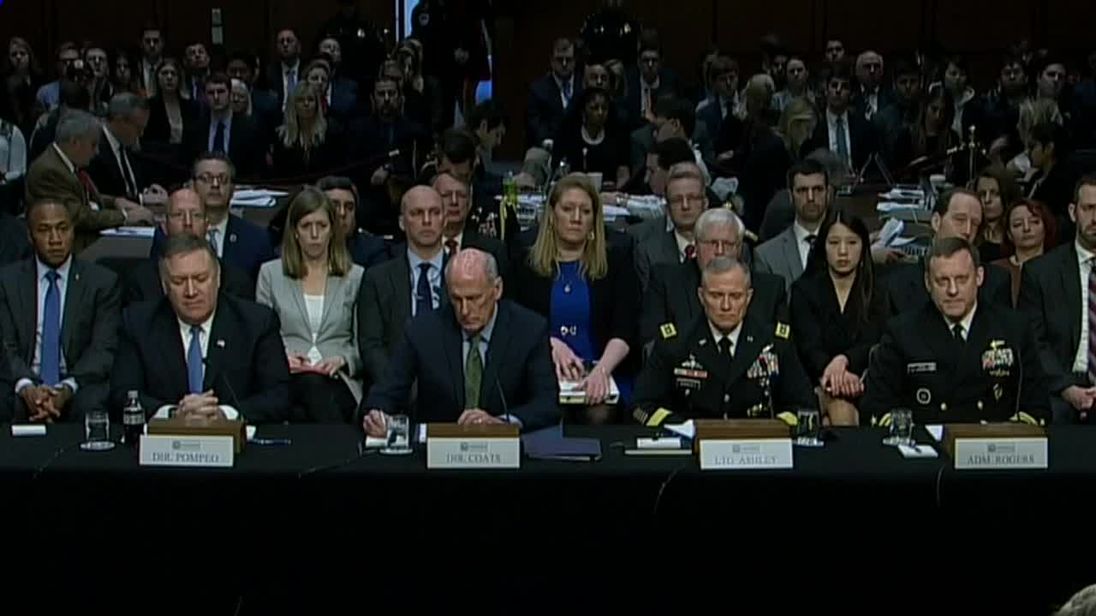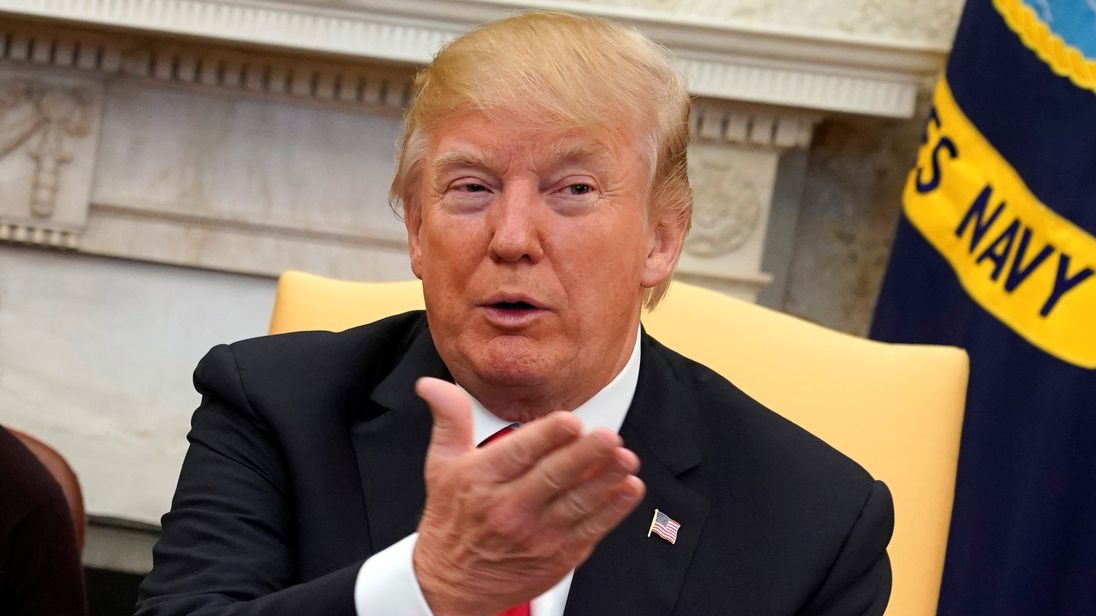In a barely veiled criticism of the Trump administration, the committee opened a hearing with intelligence officials in Washington by stressing their faith in those services.
"Cyber is clearly the most challenging in threat vector this country faces," said committee chairman Senator Richard Burr.
"It's also the most concerning, given how many aspects of our daily lives in the United States can be disrupted by a well-planned, well-executed cyberattack," Senator Burr added.
The US director of national intelligence, Dan Coats, sat alongside CIA director Mike Pompeo, FBI director Christopher Wray, and head of the NSA Admiral Mike Rogers.
Admiral Rogers told the committee: "The risk of inter-state conflict is higher than any time since the Cold War."
Russia was the initial target of the committee's concerns.
"Certain questions remain with respect to the true extent of Russian interference in the 2016 elections," said committee vice chairman Senator Mark Warner.
"First, Russia engaged in a coordinated attack to undermine our democracy. Second, that effort included the targeting of state and local election systems in 21 states.
"Third, the Russian effort utilised our social media platforms to push and spread misinformation at an unprecedented scale."
Senator Warner added: "We've had more than a year to get our act together and address the threat posed by Russia and implement a strategy to deter future attacks. But we still do not have a plan."
This was a particular concern ahead of the US midterm elections, which are likely to be targeted by Russia, according to the intelligence chiefs.
"There should be no doubt that Russia perceives its past efforts as successful and views the 2018 US midterm elections as a potential target for Russian influence operations," said national intelligence director Dan Coats.
His statements follow unsubstantiated suggestions that Russian state-sponsored hackers disrupted the opening ceremony of the Pyeonchang Winter Olympics, from which its athletes had been banned after a doping scandal.


